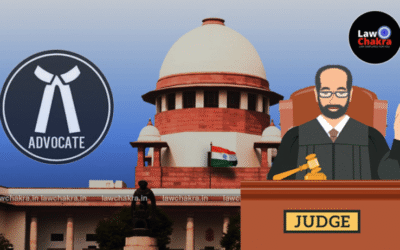BNS Section 23: Legal Accountability for Acts Under Involuntary Intoxication
Act of a person incapable of judgment by reason of intoxication caused against his will
Nothing is an offence which is done by a person who, at the time of doing it, is, by reason of intoxication, incapable of knowing the nature of the act, or that he is doing what is either wrong, or contrary to law; unless that the thing which intoxicated him was administered to him without his knowledge or against his will.
Key Points for BNS-23 (Act of a Person Incapable of Judgment Due to Involuntary Intoxication)
BNS-23 provides immunity from criminal liability for individuals who are intoxicated against their will and are thus incapable of understanding the nature or wrongness of their actions at the time of committing an offense. The law recognizes that in such cases, the individual cannot form the necessary intent to commit a crime.
1. Legal Immunity Due to Involuntary Intoxication
- If a person is involuntarily intoxicated, meaning they are intoxicated without their knowledge or against their will, and as a result, they cannot comprehend their actions or realize that they are committing a crime, they are granted legal immunity.
- This provision shields individuals from criminal responsibility when their intoxication prevents them from understanding that their act is wrong or contrary to the law.
2. Involuntary Intoxication
- Involuntary intoxication occurs when a person is forced or unwittingly intoxicated by another person. For instance, if someone is drugged or unknowingly consumes alcohol or other intoxicating substances, and as a result, commits an act that would normally be criminal, BNS-23 ensures they are not held accountable.
- The key element is that the intoxication must be unintentional—the person must not have voluntarily consumed the intoxicating substance.
3. Incapacity to Judge the Act
- For the defense to apply, the person must be incapable of:
- Understanding the nature of their actions (e.g., they are unaware of what they are doing).
- Realizing that the act is wrong or illegal.
- For example, if someone is forced into intoxication and commits an offense without understanding its implications, BNS-23 can absolve them from criminal responsibility.
4. Voluntary Intoxication Not a Defense
- Voluntary intoxication (when a person willingly consumes alcohol or drugs) does not provide a defense under BNS-23.
- If a person consumes intoxicants willingly and commits a crime, they can still be held criminally responsible, as the law does not excuse actions taken under voluntary intoxication.
5. State of Mind at the Time of the Offense
- BNS-23 focuses on the state of mind at the time of the offense. If a person, due to involuntary intoxication, cannot understand what they are doing or that their actions are wrong, they are protected from liability.
- This aligns with the legal principle that criminal responsibility requires the ability to form intent and understand one’s actions.
6. Administration of Intoxicants
- For the immunity to apply, the intoxicant must have been administered to the person without their knowledge or against their will.
- This could involve actions such as spiking a drink or coercing someone into consuming intoxicating substances.
Conclusion
BNS-23 ensures that individuals who commit acts while involuntarily intoxicated are not held criminally responsible if they are unable to understand the nature of their actions or realize they are committing a crime. The provision is designed to prevent unjust punishment in cases where intoxication was caused against the person’s will. However, voluntary intoxication is not a valid defense, and individuals who willingly consume intoxicants are still accountable for their actions.


